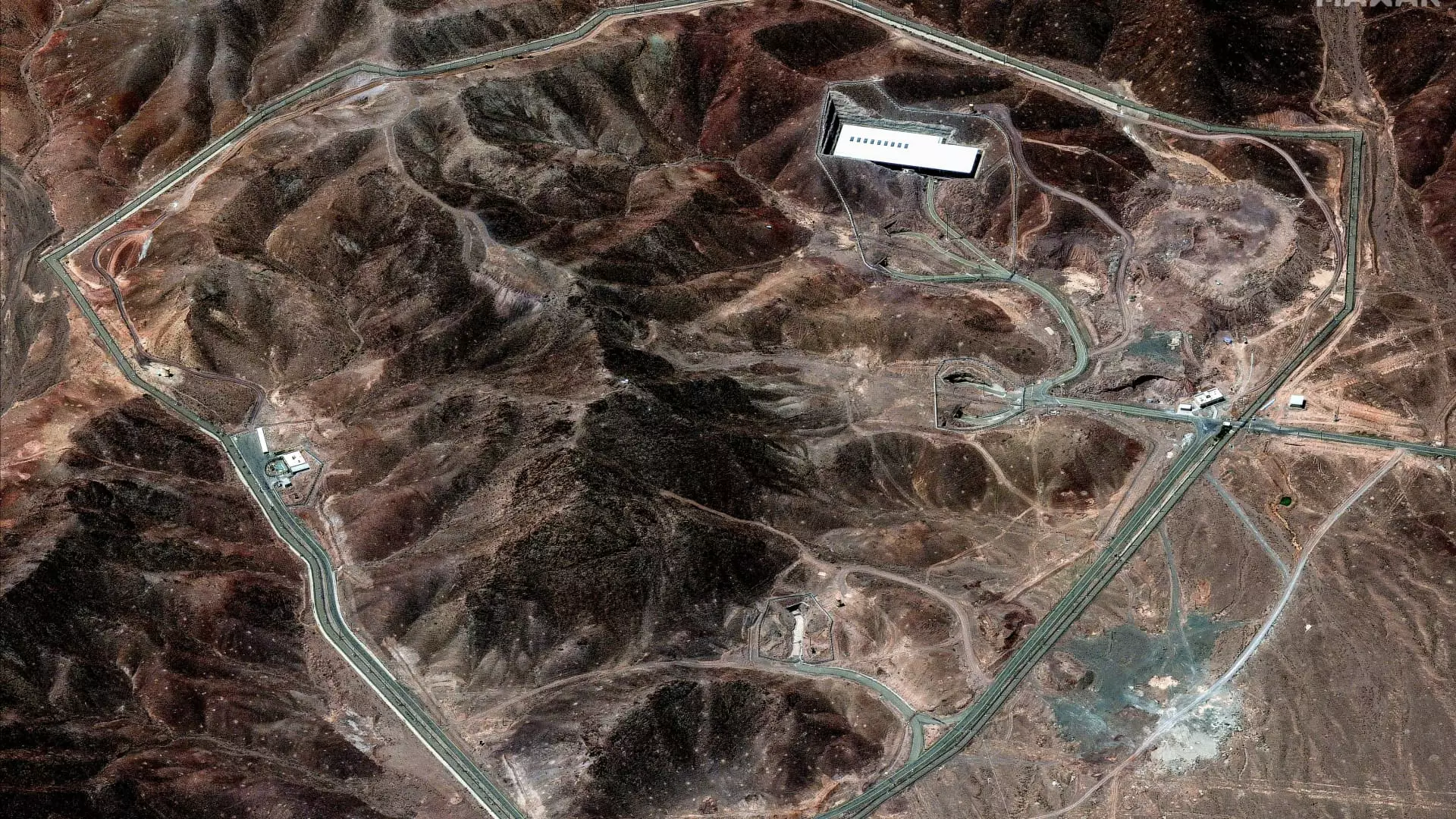The geopolitical theater surrounding Iran’s nuclear ambitions has always been fraught with tension and treachery. Recent announcements from U.S. intelligence assert that no nuclear materials were removed from the Fordo facility prior to American airstrikes, a stance echoed fervently by Republican Senator Markwayne Mullin. However, the inherent similarities between political posturing and reality have never been more intricate. Mullin’s confident proclamations serve to bolster the narrative of control over an unpredictable adversary, yet the foundation of these assertions is riddled with questions surrounding validity and intent.
This confidence is juxtaposed against reports from unnamed Israeli officials suggesting that Iran may have strategically repositioned its assets before the bombings. Such conflicting narratives not only exemplify the fog of war but further reveal a calculated rivalry where the truth is often sacrificed on the altar of national pride. The perception of unwavering intelligence capabilities wielding the power to determine what is true and what is fabricated only deepens the skepticism surrounding America’s interventions. Is it possible that the U.S. has painted itself into a corner of believing its own rhetoric while neglecting the nuanced realities of statecraft?
The Myth of the Impeccable Strike
Mullin’s unwavering assurance that the U.S. airstrikes ‘completely obliterated’ Iran’s nuclear production capabilities sends a shiver through those who understand the historical implications of overly optimistic assessments. To frame these military actions as complete victories is not merely an oversimplification; it’s a dangerous gambit that risks downplaying subsequent repercussions. Continuous bombastic declarations surrounding the futility of Iran’s nuclear ambitions lead to dangerous complacency, where error is cloaked within blind zeal.
From the echoing caverns of Fordo, which rests deep beneath layers of rock, lies both a physical and symbolic fortress. This isn’t merely a production facility; it’s a testament to Iran’s resilience amidst crippling sanctions and international isolation. Mullin and his allies’ belief that they’ve triumphed over an inviolable stronghold brushes aside the real question: what do these military maneuvers achieve aside from showcasing technological prowess? Their implications stretch beyond immediate military victories, fostering a cycle of retaliation rather than resolution.
Engagement or Escalation? The Thin Line of Diplomacy
The implications of Mullin’s statements suggest a troubling shift toward a more protracted military conflict rather than diplomacy. The language used—“working with our allies to finish the job”—reveals a readiness to embrace further military engagement without congressional oversight. This stance hints at a troubling trend where the executive branch, cloaked in the mantle of national security, operates with minimal checks on its authority.
Historically, U.S. military interventions have often led to unforeseen consequences wherein the costs, both human and fiscal, far outweigh any purported gains. President Trump’s reluctance to seek congressional authorization for strikes resonates with this historical pattern. It signals an alarming trend where unilateral military action becomes the default—a form of governance that prioritizes perceived threats over measured diplomatic measures.
The citizens of the U.S. have witnessed the ramifications of such military interventions in Iraq and Afghanistan, where promised stability unfolded into chaos. As the specter of renewed strikes looms, Americans must confront whether the path we’re treading is congruent with the values we profess to uphold. Is it a defense of democracy, or merely a cycle of subjugation under the guise of liberation?
The Distorted Lens of Security
Mullin’s comments reveal an unsettling truth about how U.S. foreign policy can distort the parameters of security. By framing Iran as the unequivocal villain, there’s a risk of breeding disdain that overshadows the complexity of Middle Eastern politics. This unwavering focus on obliteration overlooks the necessity of dialogue and negotiation, principles that should ground any sound foreign policy philosophy.
The ideological battle between security and diplomacy rests on the premise that engagement can forge pathways to understanding, ultimately leading to a less volatile world. While it is crucial to address Iran’s nuclear developments, it is equally important to address the roots of hostility. The relentless cycle of strikes and retaliatory actions only prolongs a narrative steeped in fear, which all but guarantees the emergence of new adversaries.
If the U.S. is steadfast in its belief that it will not permit a nuclear-armed Iran, then a recalibrated strategy emerging from critical engagement rather than isolation must be sought. The course of history tells us that enduring peace requires more than bombs; it requires a commitment to reconciling differences and an acknowledgment of shared humanity.

